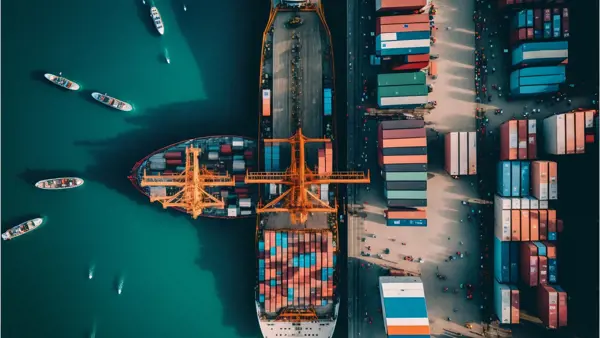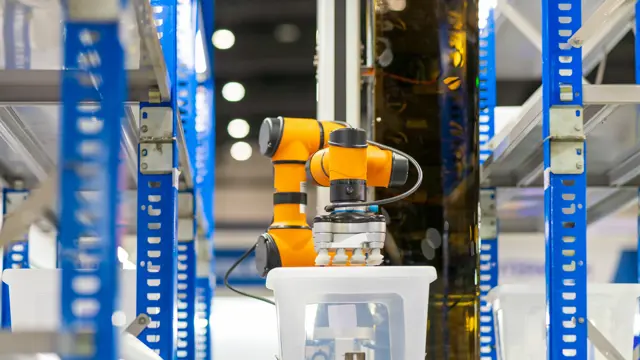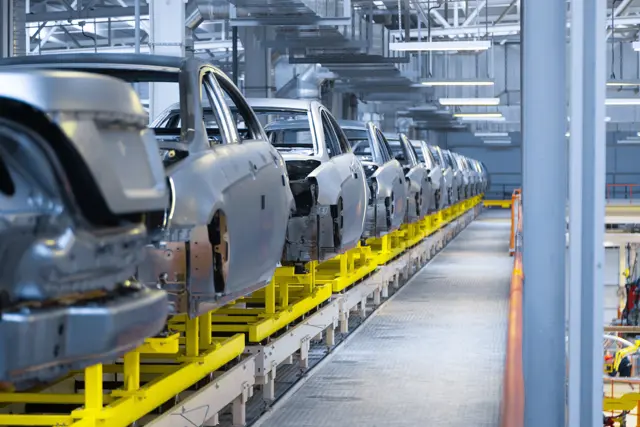Strategies for Building a Resilient Supply Chain

Strengthening Supply Chain Resilience for Competitive Advantage
What is Supply Chain Resilience?
Supply chain resilience is the capacity of manufacturers to swiftly address operational disruptions by implementing adaptable contingency plans and accurate forecasting. This encompasses all stages, from sourcing materials to managing logistics and ensuring the final delivery of products and services. For manufacturers, this means maintaining production schedules, meeting customer demands, and minimising downtime even in the face of unexpected challenges whilst managing risks.
A resilient supply chain is characterised by its ability to withstand and bounce back from disruptions such as natural disasters. This involves minimising the effects of supply chain interruptions and effectively managing those that do occur. Supply chain disruption can impact various parts of the supply chain and overall business stability. Events like the Suez Canal blockage and geopolitical conflicts have shown how such disruptions can affect logistics, suppliers, and workforces on a large scale. Other disruptions might arise from unexpected competitors, sudden market shifts, or changes in consumer behaviour.
The most robust and effective supply chains are not just about resistance and recovery. They incorporate advanced processes and modern technologies to predict, prepare for, and swiftly respond to potential risks and opportunities.
Supplier Risk Management
Effective supply chain risk management has always been a complex task. The interconnected nature of supply chains means that even minor issues in one area can disrupt the entire system globally. Major global events can significantly amplify these disruptions. For example, natural disasters and economic sanctions have significantly underscored the fragility of supply chains.
Recent statistics show that e-commerce sales are expected to surpass $7.4 trillion in 2025. This rapid growth has led to higher consumer expectations for fast delivery and personalised shopping experiences, often referred to as the “Amazon Effect”. To meet these demands, supply chain managers have had to rapidly adapt their logistics and warehousing strategies and collaborate with more third-party fulfilment partners.
Even before the impact of recent global events, UK manufacturers and retailers were working to reduce reliance on overseas suppliers. By 2024, the unpredictability of foreign tariffs and trade policies had driven companies to seek technological solutions to enhance the resilience and self-reliance of their supply chains. The integration of digital transformation and Industry 4.0 technologies into supply chain operations has become increasingly important for business leaders worldwide. This shift has been crucial in helping UK manufacturers and retailers navigate challenges and build more robust, adaptable supply chain networks.
The Impact of Inflation on Supply Chain Management
According to the Agility Assessment 2024, 85% of businesses surveyed indicated that inflation was a significant concern impacting their operations. The same global issues causing supply chain disruptions—such as labor shortages, inventory shortages, and political instability—are also driving inflation. Leading businesses are discovering that continuous and integrated supply chain planning is their best strategy against these uncertainties. By leveraging technologies designed to combat inflation, companies can anticipate challenges, adjust their plans in real time, and build the supply chain resilience needed to adapt to rising costs and ever-changing consumer demands.
Understanding Supply Chain Resilience
Effective supply chain management involves quickly responding to operational supply chain disruptions and having flexible contingency plans. However, true resilience means being able to predict and prevent disruptions before they occur.
- 1
Optimising Production through Planning
Strategic supply chain planning is crucial for resilience. It aligns all components of the supply chain, enhancing visibility and agility. This approach helps businesses anticipate issues, minimise the impact of disruptions, and improve overall operations.
- 2
Leveraging Data and Technology
Businesses that utilise digital systems to analyse Big Data can significantly improve their supply chain resilience. AI-powered systems can integrate diverse data sources, such as news, competitor activities, sales reports, and customer feedback, to identify trends and opportunities. Connected devices provide real-time insights, enabling automation and optimisation of workflows. Technologies like AI, machine learning, and advanced databases not only manage Big Data but also analyse it to drive intelligent automation and quick responses to supply chain disruptions.
- 3
Diversifying Suppliers and Partners
Traditionally, supply chain managers minimised the number of partners to reduce complexity. However, this strategy depends on stable social, environmental, and political conditions. Unexpected disruptions in one region can halt operations across the supplier network. Modern resilient supply chains use technologies like blockchain, sensors, and advanced analytics to manage complex partnerships and supplier contracts, even in distant regions. The HSO Supplier Relationship Management Accelerator can help you manage your suppliers efficiently, reduce disruptions and save costs with minimal effort.
- 4
Establishing Capacity and Inventory Safety Nets
Historically, supply chains aimed to minimise surplus and keep inventories lean to reduce costs. However, the pandemic highlighted the risks of this approach. Companies are now shifting from "just in time" to "just in case" strategies, investing in resilience-building solutions. Digital supply chain technologies enable on-demand manufacturing, virtual inventories, and predictive demand forecasting, helping businesses remain resilient during unexpected supply chain disruptions.
Future-Proof Your Business: The Role of 4.0 Technologies in Supply Chains
Embracing digital transformation and modern supply chain technologies equips businesses with the resilience and competitive advantage needed to swiftly respond to disruptions and opportunities. According to the 2024 Manufacturing Agility Assessment, conducted by The Manufacturer and sponsored by HSO, 82% of manufacturers reported that adopting digital solutions led to a 30% increase in productivity. Additionally, 82% of companies indicated that supply chain diversification significantly improved their operational agility and resilience.
- Artificial Intelligence (AI): AI-powered solutions gather and analyse data from diverse sources, providing deep insights into operations. Predictive analytics and Big Data help forecast risks and demands, recommending actions across the business. There's no getting away from it—AI is key to business success for manufacturers. To stay competitive and resilient, companies must look to embrace AI and integrate it into their supply chain strategies.
- Modern Databases: Resilient supply chain solutions depend on Big Data, advanced analytics, and real-time insights. Accurate data is crucial for AI to function effectively, making it one of the first areas to strategise. With a modern ERP system and in-memory database, supply chain technologies can operate at peak efficiency and resilience.
- Additive (3D) Printing: Smart factories can rapidly reprogram 3D printers to produce specific products on demand, minimising long-term disruptions. Virtual inventories provide a buffer against supply chain interruptions.
- Robots and Autonomous Things: Automated for precision, speed, and efficiency, robots and drones can quickly adapt their processes to meet changing demands. They also improve safety by taking over repetitive or hazardous tasks from human workers.
- Machine Learning: This AI application uncovers patterns in supply chain data and identifies key factors, continuously learning to improve. This allows supply chain managers to implement the best possible workflows and strategies swiftly.
- Industrial Internet of Things (IIoT): IIoT networks consist of connected devices with sensors and unique identifiers, capable of sending and receiving data. These devices collect and communicate data to a central system, where AI analyses it for quick decision-making and intelligent automation.
Partner with the best to elevate your supply chain strategy in 2025
HSO has proudly partnered with Microsoft for many years and was honoured with the 2024 Partner of the Year Award for Supply Chain Management. As you plan your supply chain strategy for 2025, reach out to our experts for a comprehensive Supply Chain Assessment.

Read our four blogs from the
Manufacturing AI series






